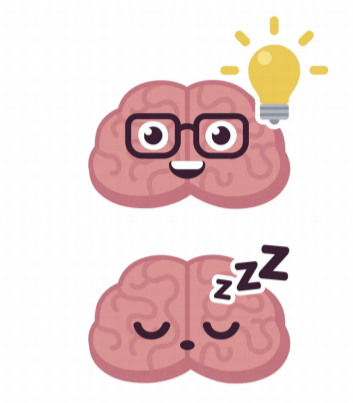Yawn!! You slowly open your eyes to see the bright sunlight glaring at you. Your alarm clock just woke you up from a deep sleep, giving a reminder that you have a big day ahead of you. As you wake up, you follow your routine and get started on your day. If you think this everyday activity of waking up may seem rather simple, get ready to have your mind blown with the amount of science involved behind waking up your sleepy brain!
When you’re in a deep sleep, you can’t do any particular work or tasks, & you cannot hear anything either. But, when you wake up, your brain instantaneously turns on, as if it already knew your morning routine. How does your brain do this amazing task of gaining consciousness almost in an instant?
One of the most important systems in your brain to wake you up and turn on for the day is a brain system called the reticular activating system, or what scientists abbreviate as RAS. This system is part of your brain, located just above your spinal column. The RAS acts almost as a filter for the brain, as it makes sure the brain does not have to deal with overwhelming amounts of information. The RAS can sense important information and create neurochemicals that also wake up other parts of the brain. This essential activating system also keeps you awake throughout the day, and allows the other parts of the body to give energy to the places where you most need it.
Suppose you wake up in the middle of the night because of a bad dream, water, or any other reason. The RAS in your brain senses a signal from the rest of your body that allows it to quickly flip a switch and activate to allow you to function properly. To add on, your RAS may also take some time to activate. For instance, when your alarm clock might wake you up from an extremely deep sleep, you may notice that it takes rather longer to wake up and get started with your day. The reason behind this is because your RAS takes a few minutes to clear all the “sleepy” neurochemicals from your brain, including norepinephrine, histamine, and serotonin.
Even though scientists have conducted various research projects and testing on humans, there are still many mysteries to solve about the wonders of sleeping. Though we sleep for a whole third of our day, our brain is constantly working to help us function. So the next time you wake up and feel energized to start up your day, remember to thank your reticular activating system!
Author: Vinuta Ramakrishnan
